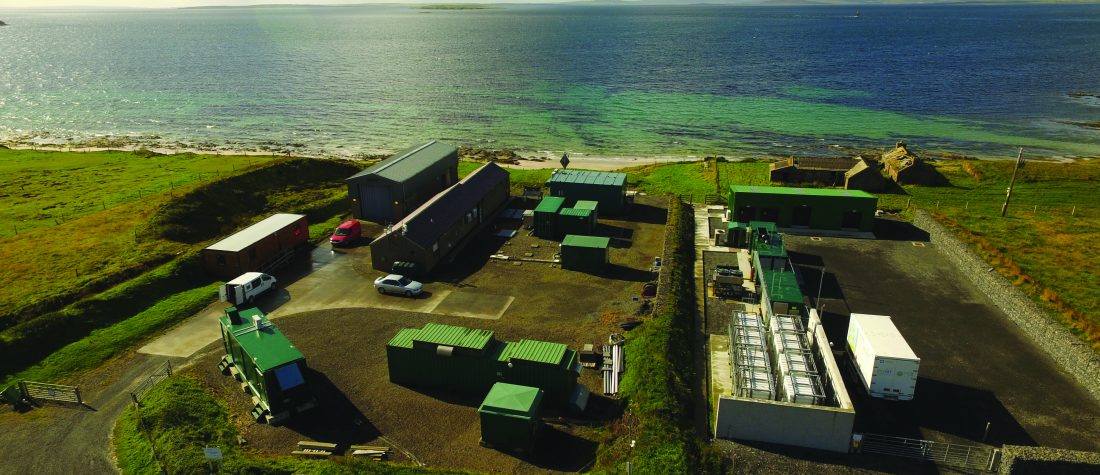Direct experience in the chemical industry, where I trained and worked for nine years, sparked my passion for energy transition away from fossil fuels and towards low-carbon alternatives.
Hydrogen is an opportunity to tackle climate change while supporting our economy. With hydrogen, we can reduce fossil fuel consumption while still protecting jobs, like those of my former colleagues in Teesside. The pandemic has made this even more important and provides the UK with an opportunity to create a new strategy for a green economic recovery.
This sector is especially important in my constituency, Redcar and Cleveland, and in Teesside as a whole. Amazingly, Tees Valley and the North East produce 50 per cent of the UK’s hydrogen. The first trials for domestic heating run on hydrogen are happening right now in Teesside. We have real potential to expand and create lots of excellent jobs and it’s something I’m hugely keen to use my background and knowledge in the field to shape the views of other parliamentarians.
That’s why I joined the Hydrogen APPG, of which I’ve been chair of since February 2020. I’m mindful of the impact that a well-run APPG can have, especially those that focus on a single, crucial policy area like hydrogen. There is clear merit in building cross-party consensus when possible – the Hydrogen APPG is a great example of this. It has 41 parliamentary members, making it one of the largest APPGs.
Along with regular meetings discussing the promotion of hydrogen’s potential in job creation and decarbonisation, we issue annual reports with recommendations to the government on how we look to a cleaner, greener industrial future and how hydrogen can replace natural gas for things like domestic heating.
The APPG’s July report recommended establishing significant and long-term financial support for the development, deployment and operation of hydrogen technologies, expansion beyond the existing commitments of 5GW production and commitment to ramping up hydrogen production via a “twin-track” approach.
The UK was the first major economy to commit to becoming net zero by 2050. This year, with Cop26 in November, there has been lots of progress. The government’s Heat and Buildings Strategy, Net Zero Review and Net Zero Strategy are all expected in the coming months.
The IPCC report hammered home the critical importance of swift, substantial decarbonisation. Hydrogen in particular is finally being recognised as an important contributor to long-term decarbonisation, providing it’s combined with greater energy efficiency, cheap low-carbon power generation, electrified transport and new hybrid heat pump systems.
The Hydrogen APPG worked with the government on its Hydrogen Strategy, released in August. It’s been designed to give the industry the backing it needs to continue its work in establishing a hydrogen economy. The UK is a global leader in demonstrating hydrogen technology in practice and proving its potential to decarbonise heating our homes as well as industry and transport.
Regularly listening to industry experts and leading the Hydrogen APPG’s charge to explore all avenues regarding the sector’s potential, I know the industry already has the ability to achieve the government’s 5GW target by 2030. With this new national strategy, I believe we can exceed it.
Jacob Young is chair of the APPG on Hydrogen.
A world leader in clean hydrogen
FLEXIBLE ENERGY
The government has identified hydrogen as one of a handful of new, low-carbon solutions that will be critical for the UK’s transition to net zero. As part of a deeply decarbonised renewable energy system, low carbon hydrogen could be a versatile replacement for high-carbon fuels used today – helping to bring down emissions in vital UK industrial sectors and providing flexible energy for power, heat and transport.
FUTURE SUPPLY
In August, the government published its long-awaited Hydrogen Strategy which proposes £4 billion of investment by 2030. By 2050, it hopes that 20 to 30 per cent of the UK’s energy demand will be supplied by hydrogen. It might not be long before a thriving hydrogen sector is fuelling your car or heating your home.
WORLD-CLASS INNOVATION
The strategy outlines how the UK’s vision, resources and know-how are ideally suited to rapidly developing a thriving hydrogen economy, citing how “world-class innovation and expertise offer opportunities for UK companies in growing domestic and global markets.” It sets out how the government will drive progress in the 2020s to deliver its 5GW production ambition by 2030 and position hydrogen to help meet its Sixth Carbon Budget and net zero commitments.
CLEAN POWER
Working with industry, the UK government’s ambition is for 5GW of low-carbon hydrogen production capacity by 2030 for use across the economy. This could produce hydrogen equivalent to the amount of gas consumed by over three million UK households each year. This new low-carbon hydrogen could help provide cleaner energy to power the economy and everyday lives – from cookers to distilleries, film shoots to power plants, waste trucks to steel production and the heat in our homes.
REDUCING EMISSIONS
Meeting the government’s ambition means a rapid ramp-up of production and use of hydrogen over the coming decade. In each country of the UK, there are world-leading projects ready to deploy at scale, saving carbon and creating jobs. These trailblazers will help us fully understand the costs around hydrogen, its safety where hydrogen is being used in new ways, and just how far it can contribute to reducing our emissions.


